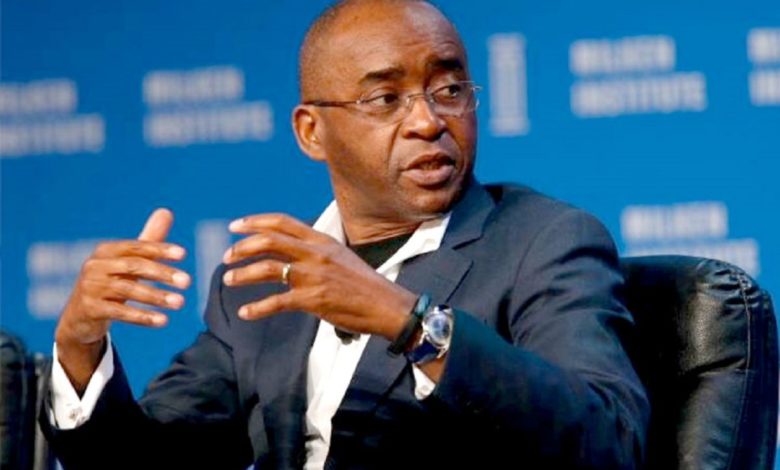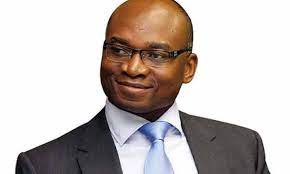Strive Masiyiwa | Zimbabwe’s finest: Telecoms Boss Strives to Change The World
Zimbabwean businessman, entrepreneur and philanthropist

Strive Masiyiwa Profile

By Kamangeni Phiri
Billionaire and telecommunications magnet, Strive Masiyiwa, could have been a freedom fighter, perhaps even a politician involved in the matrix of the country’s administration, if fate had not intervened.
Way back in 1978, a young Masiyiwa fresh out of high school in Scotland, travelled back to Zimbabwe, his country of birth, intending to join the war of liberation. His intention was to eventually cross-over into Zambia and fight alongside the freedom fighters to dislodge the Rhodesian government.
But when Strive got to Zambia, he met his cousin who was in charge of a training camp for the Zimbabwe African National Liberation Army, a military wing for Zanu-PF.
“He told me ‘Look, we’re about to win anyway, and what we really need is people like you to help rebuild the country.’ I took his advice,” Masiyiwa told Time magazine in 2002.
Instead of a gun, Strive ended up taking a letter to the British Council that would help him get a scholarship for university education in Britain.
He was to obtain a degree in electrical and electronic engineering from the University of Wales in 1983. Masiyiwa worked briefly in the computer industry in Cambridge, England.
But being the patriotic man he is, Masiyiwa chose to return to Zimbabwe in 1984, hoping to help rebuild the country’s economy which was recovering from the effects of a protracted Rhodesian Bush War.
He joined the state-owned telephone company, Post and Telecommunications Corporation (PTC), as a senior engineer. Masiyiwa was later promoted to the position of principal engineer before quitting his job in 1986 to form his own electrical contracting company, Retrofit Engineering. The company asserted itself and was soon hovering up lucrative government contracts.
In 1993, Masiyiwa envisioned cellular communications as the next big thing and decided to venture into the unchartered territory of mobile phone business by forming Econet Zimbabwe. He was aged 25 and was already a successful businessman with six or seven years experience.
Despite its enormous potential, Masiyiwa was well aware that the telecommunications industry was capital intensive. He sold his engineering company and approached his former employers with the idea of forming a joint venture.
“I thought it was going to be a fairly simple thing. I was wrong. They told me, ‘We have more important things to do here, so don’t bother us’. I had a letter written to me by the head of PTC saying the whole thing was a fad, it was going to disappear,” the business mogul said in a 2017 discussion he had with students and guests at Stanford Graduate School of Business’s Africa Business Club and the Center for Entrepreneurial Studies.
PTC, now Telone, worked hard to protect its monopoly by fighting Masiyiwa in court. Masiyiwa had taken the matter to the Supreme Court where he tried to prove that PTC did not have a monopoly. He lost the case.
More resistance was to come from the Robert Mugabe led government, which refused to issue Masiyiwa a license to operate.
But Strive, probably drawing inspiration from his name, became more determined to set up his cellular network company. The name Strive means to make great effort to achieve or obtain something. It can also mean to struggle of fight vigorously.
The matter moved to the Constitutional Court and it was now no longer about PTC’s monopoly but that of freedom of expression.
At that time, about 75 percent of Zimbabweans had never heard a telephone ringing and this became the gist and crux of the Econet case. It captured newspaper headlines locally and across the entire African continent.
“Working for PTC was a badge of honour and a lot of my friends made money out of it through bribes. It could officially take 14 years to get a telephone in most African countries. Our tele-density was point zero seven percent. It was literally impossible for anyone to have a telephone line,” said Masiyiwa.
The Constitutional Court of Zimbabwe finally ruled in his favour after a five-year legal battle, which almost left Masiyiwa bankrupt.
Econet Wireless Zimbabwe connected its first cellphone subscriber to the new network in 1998. In July of the same year, Masiyiwa listed the company on the local stock exchange. Two years later, he left Zimbabwe with his family in 2000 for South Africa.
Masiyiwa told UK publication, The Guardian, in 2009 that his real reason for moving to South Africa was to realise his dream of creating a truly multinational African business: “This is the space we have been trying to fill, to pioneer the development of African companies that have a global outlook. South Africa was the only place where there was an outlook about building businesses that go to other countries.”
After more than ten years in South Africa, Masiyiwa moved to London. This time, he wanted to turn his holding company into a multination dominating Global technological and telecommunication markets.
Strive Masiyiwa is a Zimbabwean billionaire, business magnet and philanthropist. He was born on 29 January in 1961. He is married to Tsitsi and the couple is based in London, England together with their six children.
In 1965, the Rhodesian government of the late then Prime Minister, Ian Smith adopted a statement of the Unilateral Declaration of Independence (UDI) resulting in the country being hit by sanctions. At the age of seven Masiyiwa and his family relocated to Zambia in 1968, three years after UDI. The Masiyiwa family settled in Kitwe, a city in north central Zambia known for its copper mines. It was here that Strive did his primary school education and by the time he turned 12 his parents sent him to private school in Edinburgh in Scotland for his secondary education where he graduated in 1978.
Today, Masiyiwa’s Econet International has grown to be a global brand with investments in more than 20 countries in Africa, Latin America, The United Kingdom, Europe, China, United Arab Emirates (UAE), and New Zealand. His Zimbabwean subsidiaries, Econet Wireless Zimbabwe (1998) and Cassava Fintech (2018), are well-performing holding companies listed on the local stock exchange. Masiyiwa also has interests in insurance, banking and finance. He owns Steward Bank and the biggest mobile money platform in Zimbabwe, EcoCash, which has close to 10 million registered users.
Masiyiwa’s business acumen was groomed at an early age by his mother, who was an entrepreneur. She came up with an idea for Strive to earn his own pocket money through selling chewing gum at his primary school.
Thus, the seed was planted for the man to be a global business mogul. He is the founder and executive chairman of international technology groups, Econet Global and Cassava Technologies.
Masiyiwa, a devout Christian and philanthropist, has provided scholarships to more than 250,000 young Africans over the past 20 years through his family foundation. He supports more than 40,000 orphans with educational initiatives and sponsors students at universities in America, the United Kingdom, and China.
Masiyiwa and his wife also started a non-profit organisation, Higherlife Foundation, which empowers disadvantaged children through education and creating opportunities for highly talented young people. Through one of the largest scholarship programmes in Africa, the Foundation pays school fees for 30,000 students annually in Zimbabwe, Lesotho and Burundi. The Zimbabwean scholarship programme which carters for A level and tertiary students in local institutions was named after the late Vice President and nationalist, Joshua Nkomo, the man who helped Econet Zimbabwe acquire its operating license.
Masiyiwa is also a member of the Bill Gates and Warren Buffett initiative known as the Giving Pledge. The businessman is also involved in supporting a diverse range of health issues including campaigns against HIV/AIDS, Cervical Cancer, malnutrition, EBOLA, and more recently, COVID-19. He is an avid environmentalist who together with Sir Richard Branson founded the environmental group, the Carbon War Room.
When cholera hit Zimbabwe in 2019, Strive Masiyiwa together with his wife donated US$10m to help contain the disease. The couple availed a further US$60m for building resilience against the disease.
In January 2020 Masiyiwa agreed to pay striking Zimbabwean doctors a subsistence allowance of about $300 (£230) per month and provide them with transport to work.
It certainly would need a book to chronicle Masiyiwa and Tsitsi’s philanthropic works and business ventures as they are too numerous to mention.
And only Strive could encapsulate his great deeds:
“Christianity is a value system that calls on me to be compassionate, it calls on me to help the weak. I generate a lot of money for me and my shareholders and people who have been associated with me, but that cannot be an end in itself.”



316 Comments